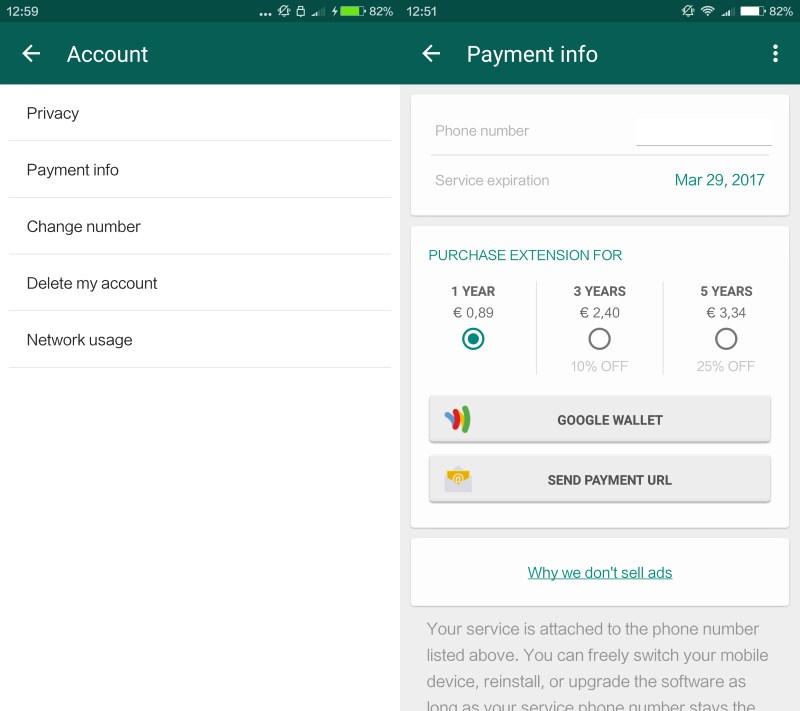WhatsApp Free Forever: removal of subscription payments
Facebook-owned WhatsApp announced today that it decided to discontinue its annual subscription payment system by turning the application into a free offering.
WhatsApp's previous subscription model was somewhat confusing as some users used the service for free effectively while others were asked to pay a subscription fee to continue using it after the first year of service.
One could say that the $1 per year subscription fee was more than fair, especially if WhatsApp is used on a regular basis, but it may have kept one or the other from using the service in first place or after the first year of service.
WhatsApp noticed this as well, stating that the paid approach did not work well at all for them.
Many WhatsApp users don't have a debit or credit card number and they worried they'd lose access to their friends and family after their first year.
As a consequence, WhatsApp announced the termination of the subscription fee in the coming weeks. Fees will be removed from the application and WhatsApp won't charge its users anymore for the service.

If you check your application right now however, fees are still listed under account > payment information.
There you find options to subscribe to WhatsApp for a year, or at a discounted price for three or five years instead. It makes little sense to renew a subscription right now as WhatsApp will be free in the coming weeks.
So how does WhatsApp plan to earn revenue from the service? The company won't introduce third-party ads on the platform even though it would like be a profitable option.
Instead, it plans to bring users and businesses together in the app.
Starting this year, we will test tools that allow you to use WhatsApp to communicate with businesses and organizations that you want to hear from. That could mean communicating with your bank about whether a recent transaction was fraudulent, or with an airline about a delayed flight.
Basically, it tries to move the communication that takes place elsewhere currently, email, snail mail or SMS for instance, to WhatsApp instead. It is likely that it is the businesses that pay for this even though that is not mentioned explicitly in the announcement.
Now You: Do you use WhatsApp? What's your take on the move?
This article was first seen on ComTek's "TekBits" Technology News

- Log in to post comments